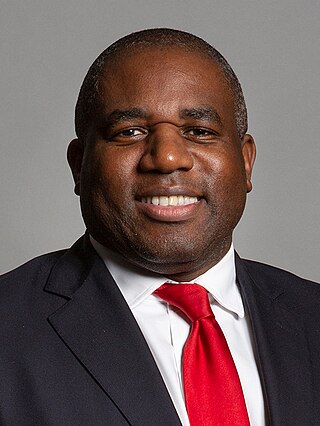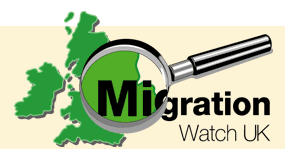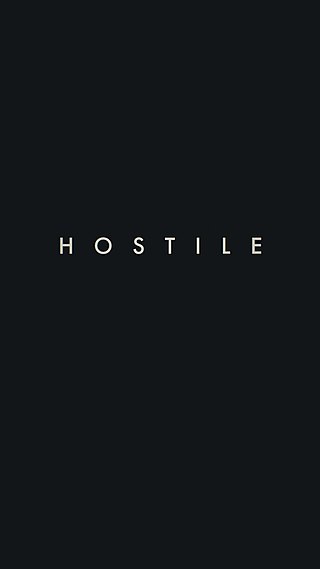
The White Australia policy was a set of racist policies that aimed to forbid people of non-European ethnic origins – especially Asians and Pacific Islanders – from immigrating to Australia in order to create a "white/British" ideal focused on but not exclusively Anglo-Celtic peoples. Pre-Federation, the Australian colonies passed many anti-Chinese immigration laws mainly using Poll Taxes, with Federation in 1901 came discrimination based on the Dictation Test, which effectively gave power to immigration officials to racially discriminate without mentioning race. The policy also affected immigrants from Germany, Italy, and other European countries, especially in wartime. Governments progressively dismantled such policies between 1949 and 1973. At first these changes were due to international pressure and were token modifications designed to maintain a white Australia until the Whitlam government removed the last racial elements of Australia's immigration laws.

The Home Office (HO), also known as the Home Department, is a ministerial department of the Government of the United Kingdom. It is responsible for immigration, security, and law and order. As such, it is responsible for policing in England and Wales, fire and rescue services in England, Border Force, visas and immigration, and the Security Service (MI5). It is also in charge of government policy on security-related issues such as drugs, counterterrorism, and immigration. It was formerly responsible for His Majesty's Prison Service and the National Probation Service, but these have been transferred to the Ministry of Justice.

David Lammy is an English politician and lawyer serving as Shadow Secretary of State for Foreign, Commonwealth and Development Affairs since 2021. A member of the Labour Party, he has been Member of Parliament (MP) for Tottenham since the 2000 Tottenham by-election.
Since 1945, immigration to the United Kingdom, controlled by British immigration law and to an extent by British nationality law, has been significant, in particular from the Republic of Ireland and from the former British Empire, especially India, Bangladesh, Pakistan, the Caribbean, South Africa, Nigeria, Ghana, Kenya, and Hong Kong. Since the accession of the UK to the European Communities in the 1970s and the creation of the EU in the early 1990s, immigrants relocated from member states of the European Union, exercising one of the European Union's Four Freedoms. In 2021, since Brexit came into effect, previous EU citizenship's right to newly move to and reside in the UK on a permanent basis does not apply anymore. A smaller number have come as asylum seekers seeking protection as refugees under the United Nations 1951 Refugee Convention.
The foreign-born population of the United Kingdom includes immigrants from a wide range of countries who are resident in the United Kingdom. In the period January to December 2016, there were groups from 23 foreign countries that were estimated to consist of at least 100,000 individuals residing in the UK.

Immigration is the international movement of people to a destination country of which they are not usual residents or where they do not possess nationality in order to settle as permanent residents. Commuters, tourists, and other short-term stays in a destination country do not fall under the definition of immigration or migration; seasonal labour immigration is sometimes included, however.

Migration Watch UK is a British think-tank and campaign group which argues for lower immigration into the United Kingdom. Founded in 2001, the group believes that international migration places undue demand on limited resources and that the current level of immigration is not sustainable.
Opposition to immigration, also known as anti-immigration, is a political ideology that seeks to restrict the incoming of people from one area to another. In the modern sense, immigration refers to the entry of people from one state or territory into another state or territory in which they are not citizens in contrast, but closely correspond to emigration which refers people leaving one state or territory in which they are citizens. Illegal immigration occurs when people immigrate to a country without having official permission to do so. Opposition to immigration ranges from calls for various immigration reforms, to proposals to completely restrict immigration, to calls for repatriation of existing immigrants.

Immigration to Europe has a long history, but increased substantially after World War II. Western European countries, especially, saw high growth in immigration post 1945, and many European nations today have sizeable immigrant populations, both of European and non-European origin. In contemporary globalization, migrations to Europe have accelerated in speed and scale. Over the last decades, there has been an increase in negative attitudes towards immigration, and many studies have emphasized marked differences in the strength of anti-immigrant attitudes among European countries.
It is difficult to measure how many people reside in the UK without authorisation, although a Home Office study based on Census 2001 data released in March 2005 estimated a population of between 310,000 and 570,000. The methods used to arrive at a figure are also much debated. Problems arise in particular from the very nature of the target population, which is hidden and mostly wants to remain so. The different definitions of 'illegality' adopted in the studies also pose a significant challenge to the comparability of the data. However, despite the methodological difficulties of estimating the number of people living in the UK without authorisation, the residual method has been widely adopted. This method subtracts the known number of authorised migrants from the total migrant population to arrive at a residual number which represents the de facto number of illegal migrants.
Migration studies is the academic study of human migration. Migration studies is an interdisciplinary field which draws on anthropology, prehistory, history, economics, law, sociology and postcolonial studies.
The result in favour of Brexit of the 2016 United Kingdom European Union membership referendum is one of the most significant political events for Britain during the 21st century. The debate provoked major consideration to an array of topics, argued up-to, and beyond, the referendum on 23 June 2016. The referendum was originally conceived by David Cameron as a means to defeat the anti-EU faction within his own party by having it fail, but he misjudged the level of public support for leaving, particularly amongst Labour Party voters. Factors included sovereignty, immigration, the economy and anti-establishment politics, amongst various other influences. The result of the referendum was that 51.8% of the votes were in favour of leaving the European Union. The formal withdrawal from the EU took place at 23:00 on 31 January 2020, almost three years after Theresa May triggered Article 50 of the Lisbon Treaty on 29 March 2017. This page provides an overarching analysis of the different arguments which were presented by both the Leave and Remain campaigns.
Tanja Bueltmann, is a German-British historian and academic, who holds the chair in International History at the University of Strathclyde. She specialises in the history of migration and diaspora. She is also a citizens' rights campaigner and founder of the EU Citizens' Champion campaign.
The UK Home Office hostile environment policy is a set of administrative and legislative measures designed to make staying in the United Kingdom as difficult as possible for people without leave to remain, in the hope that they may "voluntarily leave". The Home Office policy was first announced in 2012 under the Conservative-Liberal Democrat coalition. The policy was widely seen as being part of a strategy of reducing UK immigration figures to the levels promised in the 2010 Conservative Party Election Manifesto.
The Windrush scandal was a British political scandal that began in 2018 concerning people who were wrongly detained, denied legal rights, threatened with deportation, and in at least 83 cases wrongly deported from the UK by the Home Office. Many of those affected had been born British subjects and had arrived in the UK before 1973, particularly from Caribbean countries, as members of the "Windrush generation".
An increasing number of refugees and migrants have been entering the United Kingdom illegally by crossing the English Channel in the last decades. The Strait of Dover section between Dover in England and Calais in France represents the shortest sea crossing, and is a long-established shipping route. The shortest distance across the strait, at approximately 20 miles, is from the South Foreland, northeast of Dover in the English county of Kent, to Cap Gris Nez, a cape near to Calais in the French département of Pas-de-Calais.

55 Tufton Street is a four-storey Georgian-era townhouse on historic Tufton Street, in Westminster, London, owned by businessman Richard Smith. Since the 2010s the building has hosted a network of libertarian lobby groups and think tanks related to pro-Brexit, climate science denial and other fossil-fuel lobby groups. Some of the organisations it houses have close connections with those at 57 Tufton Street next door, including the Centre for Policy Studies and CapX.
the3million was established in the United Kingdom as a grassroots movement of EU citizens in the UK, in reaction to the developing Brexit policy landscape in the aftermath of the 2016 United Kingdom European Union membership referendum. The organisation's name was a reference to the estimated number of EU citizens who have moved from another member state to live in the United Kingdom. However, the3million did not take a specific stance on whether the United Kingdom should leave or remain in the European Union and instead the organisation primarily existed to "work with MPs and organisations across the political spectrum on the specific issue of protecting citizens’ rights." According to Politics Means Politics magazine, the organisation was the largest group representing EU citizens in the UK.
Paulette Wilson was a British immigrant rights activist who fought her own deportation to Jamaica and brought media attention to the human rights violations of the Windrush scandal.

Hostile is a 2022 documentary film directed by Sonita Gale. The film explores the UK government's 'hostile environment' immigration policy, first articulated in 2012 under the Cameron administration. The film premiered on 29 October 2021 at the Raindance Film Festival.








